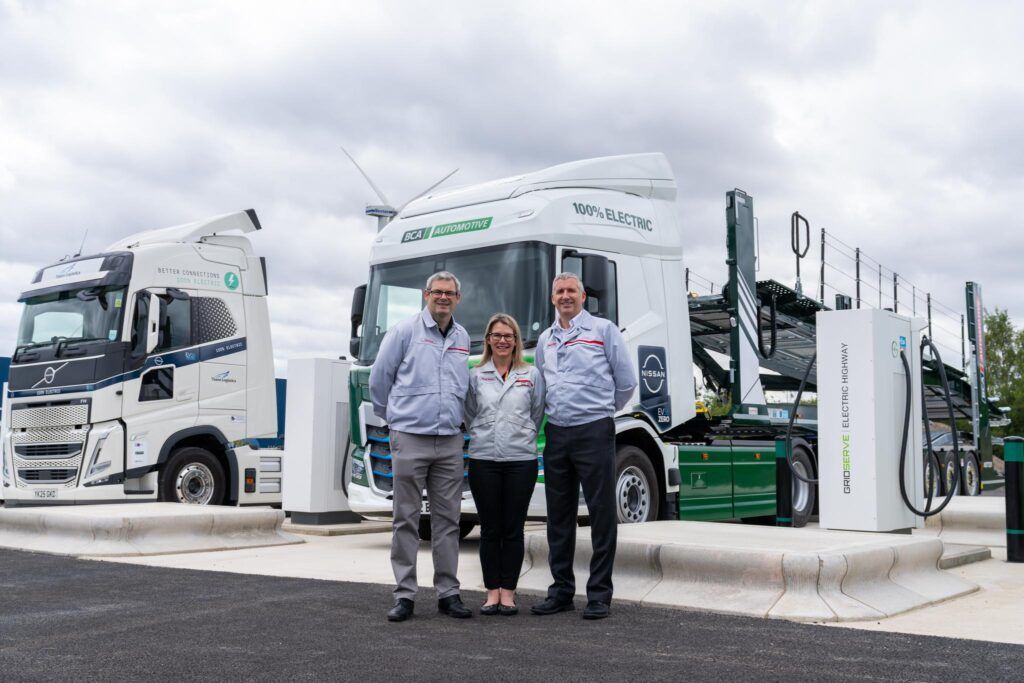BEAMA and the Energy Systems Catapult have published an analysis of the extent of infrastructure investment needed to meet Net Zero by 2050, revealing the huge opportunities that lie in the growth of green industrial sectors and job creation, forming a key part of the UK’s Green Industrial Revolution.
This work reveals the criticality of investment in the next 5-10 years if we are to limit the overall cost of Net Zero.
Manufacturing capacity for key products may increase tenfold to meet demands for Net Zero delivery, and this will need to happen faster to support a move away from imported energy and improve energy efficiency.
The potential for job creation in the UK today from the electricity supply chain is unprecedented. Manufacturers agree the level of investment needed is achievable but not under current market conditions.
The current energy crisis is now amplifying the scale and urgency for change across the energy system, as well as combined pressures on manufacturing capacity and supply shortages. The need for effective supply chain planning was urgent last year, now it is critical.
Effective planning for manufacturing capacity will be absolutely essential for UK energy supply and security in the months and years to come.
Manufacturers are making investment decisions and deciding where to build manufacturing capacity and employ people. This work has shown how fragile this decision process is, and how critical this moment in time will be, in deciding the UK’s Net Zero future and how far we can benefit from growth in employment in low carbon technology sectors.
With significant targets to be met for UK deployment of low carbon heat, storage and EV charging, already this sector faces huge skills and supply shortages which are a prominent factor limiting capital investment and progress.
Industry call for the urgent formation of an electricity supply chain council to reduce supply chain risks as we ramp up deployment of technology to meet our Net Zero targets.
Early action will reduce cost and capitalise on more benefits associated with job creation as manufacturers state desire to invest in the UK and potentially reshore parts of the supply chain.
The research reveals the upper limits of potential investment required in electricity distribution networks (£7bn/yr by 2035) and end use technologies (£3bn/yr by 2035) could be avoided with sufficient progress in establishing flexibility markets, energy efficiency and supply chain planning.
Dr Howard Porter, BEAMA CEO, said: “The future decarbonisation of our energy systems will be a big challenge. This report outlines in great detail where investments need to be made, and the great potential for UK based jobs and investment. However, we are already seeing manufacturers now deciding between the UK and other countries for investment: I want to ensure we have done everything we can to facilitate investment in the UK and keep business close to UK markets. If we can work with Government and the wider energy industry, I believe that the high potential costs outlined can be significantly reduced. Let’s all work together to deliver the future energy systems we need, whilst delivering truly low carbon solutions for UK householders and businesses.”
Carl Ennis, CEO Siemens UK, said: “The scale of the decarbonisation task is one of the biggest challenges humankind ever faced and businesses need to take leadership in supporting this transition with government and investment communities to save the planet from climate disaster. This report by BEAMA identifies the scale of the problem from supply chain point of view to enable the government, industry and investment communities to act together not only to identify the investments, skill and infrastructure developments required in the UK electricity sector but also to capture various opportunities arising from around the world during this transition.”
Pamela Bingham, CEO Glen Dimplex Heating & Ventilation, said: “We are fully supportive of the findings and call to action in this report and we are proud to have been able to contribute to it. To facilitate the electrification and decarbonisation of heat and transport and move to a net zero energy system, our industry must not only understand the size of the challenge but we must also collaborate across the entire supply chain. UK manufacturers like us who may also have an international manufacturing footprint, are currently making important strategic investment decisions. It is therefore crucial to have clarity and commitment from government on policy, support mechanisms and building skills and capacity so that business ambition is aligned with the delivery of the UK’s net zero strategy. Working together will be the only way to meet the required targets and transition to a more sustainable world.”
Phil New, CEO Energy Systems Catapult, said: “The critical urgency of changing the types of energy we use and how we use it has never been more stark. If the increasing occurrence of severe weather events, and the succession of increasingly bleak reports from IPCC and other expert bodies were not enough, the volatility in global fossil fuel markets – with immediate economic consequences forcing remarkably difficult choices on an increasing number of people – surely makes the case for accelerating the pace of energy transition. The urgency of change driven by the growing climate crisis is now compounded by the drive for energy independence and energy.”
Ian Funnell, CEO Hitachi Energy UK & IE, said: “There is no doubt that electricity will be the backbone of the UK’s future net zero energy system and that both the electricity networks themselves and the new consumers of electricity, such as EVs and heat pumps, will have to grow significantly to achieve the carbon reductions we need. This unprecedented investment in the electrical sector presents a massive opportunity to transform and grow the UK supply chain. The BEAMA report details the scale and scope of this opportunity and I strongly support the recommendation to establish an Electricity Supply Chain Council to ensure that UK businesses and Government collaborate effectively in both maximising the benefit to the UK supply chain and in delivering our net zero energy.”
Richard Dick, Executive Chairman Lucy Group, said: “The electricity system will play a fundamental role in the transition to net zero, and the supply chain will be a core enabler for this major shift. This landmark report highlights the opportunities we can seize if we recognise the need for immediate investment to facilitate a smooth and lower-cost adoption of novel approaches and technologies. As a BEAMA founding member, we fully support today’s findings, and we call on the industry and government to act in a responsible and timely manner.”
Melanie Onn, Deputy Chief Executive Renewable UK, said: “This report highlights the massive opportunities for job creation and investment across the UK’s entire energy system in areas like manufacturing and installing new grid, as well as infrastructure for heating, charging EVs, energy storage and smart metering. These parts of the energy sector can replicate the progress we’re already making in building up the UK supply chain in our world-class renewable technologies such as offshore wind, where we saw an annual record of £1 billion invested in new manufacturing last year. We’re working closely with BEAMA and other leading organisations to ensure we maximise the economic benefits of the transition to Net Zero throughout the UK.”
Image: Shutterstock















